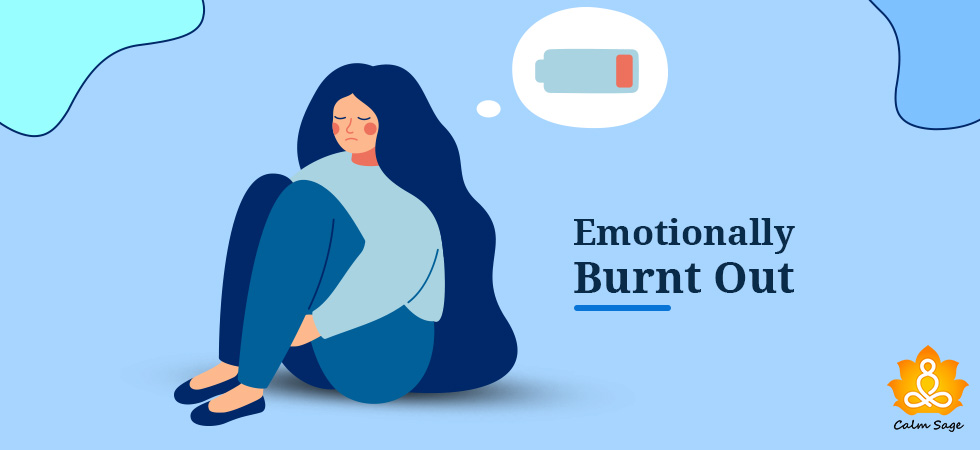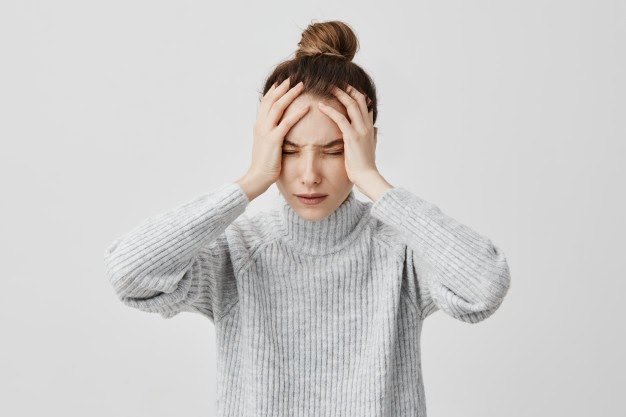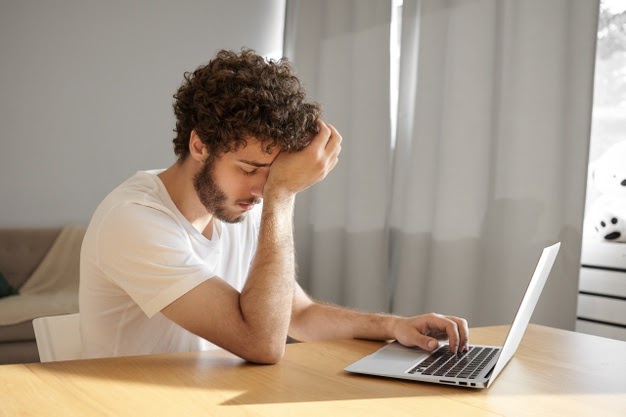Emotionally Burnt Out? Understand The Signs Of Emotional Exhaustion & How To Heal From It

While last year, in and on itself was a tough year to deal with, the year 2021 hasn’t fared any better, yet. Emotionally, we’re all wrung out and feeling drained of our energy and the emotional ability to deal with stressful situations. This feeling can be termed as emotional burnout or emotional exhaustion.
The state where you feel emotionally wrung out and drained as a result of long-term stress – professionally, personally, or a combination of both – can be one of the signs of emotional exhaustion.
When someone is feeling emotionally burnt out, they might feel as if they have no control over what’s happening in their life. Emotional exhaustion can feel a lot like you’re stuck in a rut with no way of escaping.
Being in a chronic state of emotional stress can be harmful to your overall wellness. If you’re experiencing long-term stress, you’re more likely to experience the signs of emotional burnout. If you’re feeling emotionally burnt out, it is recommended you seek professional help, immediately.

Causes Of Emotional Exhaustion

You might feel emotionally exhausted if you’re facing extreme stress and anxiety daily. While it’s okay to feel stress and anxiety in small amounts, long-term stress or anxiety can cause you to feel emotionally burnt out.
Although, the triggers of emotional exhaustion may differ from person to person. Some of the most common causes of emotional exhaustion can, however, be:
- Being employed in a job that requires high-pressure such as a nurse, military, police, doctors, etc.
- Intense studying or work schedule
- Long hour jobs or being employed in a job you don’t enjoy
- Major lifestyle changes like having a baby, raising children full-time, or going through a divorce
- Experiencing financial difficulties or stress
- Being a caregiver to a loved one
- Experiencing the death of a loved one
- Living with a chronic illness
How To Heal From Emotional Exhaustion
You can heal from the signs of emotional exhaustion by only making a few lifestyle changes. If your symptoms are severe and if making lifestyle changes isn’t herling, then it is recommended you seek professional help.
Once you’ve identified the signs of emotional exhaustion, you can follow these ways to help you heal from being emotionally burnt out.
1. Remove The Stressor
One of the first things you need to do is identify what is causing you to feel stressed out. While it is not always possible to remove your stressor entirely, it is possible to avoid situations where your stress might be triggered. Try to find out what is causing you to feel emotionally stressed and exhausted and try to avoid or remove the stressor, if possible.
2. Eat Healthily

Having a well-balanced diet rich in fruits, vegetables, proteins, whole grains while avoiding sugary or processed foods can also help you manage your emotional exhaustion. When you are stressed, it is common to gravitate towards your comfort food (mostly fat, calories, and sugar). While eating such foods might give you temporary stress relief, in the long-term it can be harmful to your brain and body.
Having a well-balanced diet can help you improve your digestion, sleep, and boost your mood that can contribute to your overall emotional wellness.
Also Read: 14 Best Foods That Help To Reduce Anxiety
3. Exercise Regularly

Exercising or any kind of physical exertion releases endorphins and serotonin which can improve your mood and emotional state. Exercising can also help you take your mind off stressful situations, hence contributing to well and good emotional health. Try to exercise for 15-30 minutes daily.
4. Limit Caffeine & Alcohol
As I said before, caffeine and alcohol may provide a temporary stress relief but in the long-term consumption of too much caffeine and alcohol can be harmful and might leave you feeling more agitated than before. To heal from emotional exhaustion, it is important to limit or avoid (if possible) caffeine or alcohol.
5. Get Enough Rest

Getting a good night’s rest can be helpful for your emotional state. Getting at least 6-8 hours of sleep every night can help you heal from emotional exhaustion and recharge your emotional batteries. Having a healthy bedtime routine can help you relax and ensure better rest.
6. Practice Mindfulness Exercises

Practicing mindfulness exercises can help with healing from emotional burnout as well. It can also help you reduce stress and anxiety. You can try practicing:
7. Take A Break From Your Routine

Sometimes being stuck in the same routine over some time can also cause you to feel emotionally burnt out. To avoid that, it is suggested you take breaks whenever possible from your routine. Go for a vacation or staycation. Relax by doing something you love apart from your daily routine. Practice self-care. Watch your favorite movie.
Take time off now and then to relax and recharge your emotional self.
8. Talk To Someone

Talking to a loved one or someone you trust can also help you heal from emotional exhaustion. If you’re not sure to talk to a friend, you can always reach out to a professional counselor or therapist for help. A professional can help you understand your stressors and teach you how to deal with them.
You can connect with a professional and licensed therapist from any of these online therapy resources or you can write to us at info@calmsage.com if you need a supportive shoulder to lean on.
Final Thoughts
Emotional exhaustion or emotional burnout, by definition, means “mental or physical collapse caused by overwork or stress”. If you or someone you know are experiencing the signs of emotional exhaustion, making the above-mentioned lifestyle changes can help and if they don’t help, you can always contact a professional for help.
Emotional exhaustion is a condition that can be treated easily. If you’re not able to make lifestyle changes for any reason, talk to a professional counselor or therapist about it. They can help you learn effective ways to cope with the signs of emotional exhaustion.
“Sometimes the best thing that you can do is not think. Not wonder. Not imagine. Not obsess. Just breathe and have faith that everything will work out for the best.” – Unknown
Take care and stay safe!

